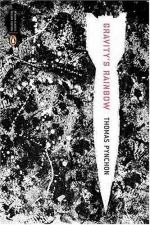|
This section contains 4,710 words (approx. 16 pages at 300 words per page) |

|
SOURCE: "Repetition and the Construction of Character in Gravity's Rainbow," in Critique: Studies in Contemporary Fiction, Vol. XXXIII, No. 4, Summer, 1992, pp. 243-54.
In the following essay, Hume considers mythographic, modernist, and postmodern aspects of Pynchon's characters in Gravity's Rainbow. According to Hume, the novel's major characters are subjected to a common set of situations and relationships that reveal Pynchon's underlying humanism.
Thinness of character in Gravity's Rainbow disquiets even the book's partisans. Pynchon confounds us with an opulent Ulyssean world but denies us the filigrain complexity of Joyce's psychological portraits. Weissmann's squalid attempts to transcend, for instance, glisten darkly in the ashes of the Zone, but Pynchon does not ground that quest in the psyche of the individual—a puzzling failure by the standards of realistic literature.
Pynchon's admirers have tried to explain away this "fault" in two fashions. One consists of redefining the genre: if Gravity's Rainbow...
|
This section contains 4,710 words (approx. 16 pages at 300 words per page) |

|


